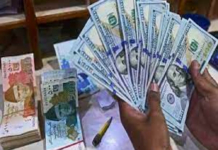Pakistan has signed a financing agreement, worth $195 million, with the World Bank to improve electricity distribution and implement energy sector reforms to increase service quality for consumers.
The agreement was signed by Secretary Economic Affairs Division Mian Asad Hayaud Din on behalf of the government. Operations Manager World Bank Anjum Ahmad signed the agreements on behalf of the World Bank.
The project objectives are to improve operational efficiency in targeted areas of three electricity distribution companies i.e. Hyderabad Electric Supply Company (HESCO), Multan Electric Power Company (MEPCO), Peshawar Electric Supply Company (PESCO) and achieve progress on the power sector reform agenda.
The Electricity Distribution Efficiency Improvement Project (EDEIP) will help distribution companies improve operations to manage the electricity supply more efficiently and increase the reliability of the electrical grid through; (a) new grid stations; (b) augmentation and up-gradation of existing grid stations; (c) construction, rehabilitation of transmission lines, modernisation of DISCOs operations and management functions, revenue and equipment protection programme and improving operations and maintenance. The project will also support the Power Division in fulfilling its policy mandate under the National Electricity Policy 2021 and implement power sector reforms.
Speaking on the occasion, the EAD secretary thanked and appreciated the World Bank management for extending continuous support to the government to promote inclusive and sustainable economic development.
He shared that, even at times of prevailing difficult situations, the government kept its focus on implementing structural reforms so that the economy regains its strength. He reiterated the government’s commitment to further strengthen implementation of reforms, including comprehensive power sector reforms focusing strongly on reducing current and future power costs, reducing reliance on imported fossil fuel, increasing renewable energy, addressing inefficiencies in distribution and lowering subsidies in the sector by better targeting them to those most in need.
Days ago, the ADB approved financing worth $195 million for EDEIP. The project focuses on cost-saving interventions to increase revenue collection and reduce losses, and on modernising operations by employing technology and information systems.







